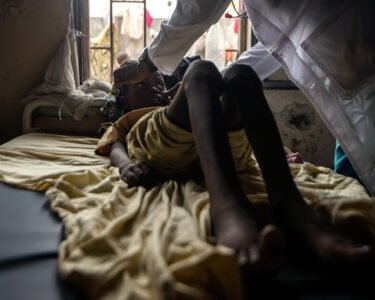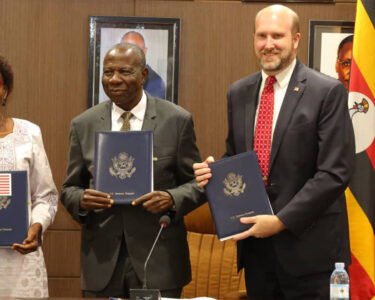A recent World Bank report highlights the severe financial strain that health-related out-of-pocket spending places on Ugandans, with close to a million people pushed into poverty each year. The report, titled “Improving Public Spending to Improve Human Capital,” was released in Kampala last Thursday and underscores the urgent need for enhanced financial risk protection, particularly for rural households.
The 23rd Edition of the World Bank Uganda Economic Update reveals that between 2016 and 2020, an average of 206,405 households, equivalent to 949,464 individuals, fell below the national poverty line due to health expenses. Additionally, 233,328 households, or 1.1 million people, were driven below the international poverty line.
Despite a decline in the incidence of impoverishment from health spending—from 4.6 percent in the 2005/06 financial year to 2.3 percent in 2019/20—the issue remains a significant barrier to human capital development in Uganda. The report indicates that the nation’s health expenditure during this period accounted for just 1.3 percent of the gross domestic product (GDP) and 7.2 percent of total public expenditure. Government contributions comprised less than 20 percent of total health spending, while external assistance covered about 50 percent and out-of-pocket expenses made up at least 30 percent.
The World Bank stressed the unsustainability of this distribution, particularly given Uganda’s rapidly growing population. Increasing public health spending is crucial for sustainable and inclusive development, and to reduce the uncertainty surrounding external financing and the burden of out-of-pocket health expenditures on households.
The report also highlights the disproportionate impact on rural households, noting that 181,374 rural households, or 870,597 people, were impoverished due to health expenses over the four-year period, compared to 51,677 urban households, or 206,709 people.
“These findings imply that although impoverishment due to health spending has decreased over the years in Uganda, there is an urgent need to further enhance financial risk protection, especially for rural households,” the report recommends.
Furthermore, the report addresses the challenge of accessing medicine, revealing that in 2022, only 49 percent of health facilities in Uganda had all essential medicines available. The inadequate supply of medicines and medical supplies is attributed to low spending and widespread theft. A government study on corruption in the health sector found rampant theft of medicines at public health facilities, leading to direct monetary losses and increased out-of-pocket spending.
The report concludes by noting that while most individuals who needed health services received them, two-thirds paid out-of-pocket, with the wealthiest households bearing the highest costs.





